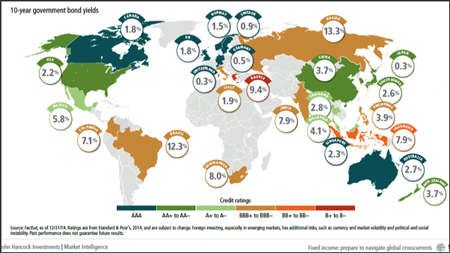Who doesn’t like a level of certainty in life? In a world full of unknowns, it’s human nature to feel more secure by having some type of guarantee. For some, this might mean holding a certain amount of cash in the bank or having your home paid off in retirement, but the topic I’m tackling in this blog is fixed income sources in retirement. Traditionally this meant a pension, social security, and annuity income. However, with pension plans now being about as common as seeing a walkman CD player and social security having its own issues, I think it makes sense to explore other options to provide a guarantee for a portion of your retirement income need.
The 50% Fixed Income Rule of Thumb
One of the many questions we discuss with clients when working with them on their financial plan (especially when they are approaching retirement) is how much of their spending goal should be comprised of fixed income sources? Ideally, we would like to see that percentage around 50%, but every client situation is different. So if the annual spending goal is $100,000 gross, $50,000 of fixed income sources (social security, pension or annuity income) is desirable with the remainder of income being drawn from a well-balanced, diversified portfolio. However, depending on the client’s risk tolerance and other assets, it could make sense to have that percentage higher or lower.
The Bygone Pension Era
Since one of the main fixed income sources for a retiree was a company pension – now virtually non-existent – it’s often up to you. The burden has been placed on the employee to fund their own retirement through a 401k, 403b or other defined contribution plan. While company matches certainly help the employee, they don’t come close to offering the same lifetime income benefit a pension provides. As such, it could make a lot of sense to explore the option of utilizing a fixed annuity for part of your retirement need.
Making Room in your Plan for Annuities
Annuities don’t make sense for everyone and they have rightfully received a bad rap. Many of them are expensive and were “sold” in situations where it just didn’t make sense for the client based on their needs and their personal situation. However, annuities are around for a reason, because they can fit the need for certain clients for a PORTION of their financial plan. With so many different options for income, annuities typically place the burden of risk on the insurance company offering the annuity for a guaranteed stream of income. Having a portion of your spending goal met by a fixed income source, such as an annuity, gives many clients an added layer of peace of mind, knowing that the income stream will be there regardless of what the market is doing.
In summary, annuities can have a place in your financial plan but like anything financial, they don’t make sense for everyone. This is our job, as your financial team member, to work with you to see if they have a place in your plan. Don’t cringe when you hear the word “annuity” like many do. Please have an open mind because they could play a very important role in your retirement!
Nick Defenthaler, CFP® is a CERTIFIED FINANCIAL PLANNER™ at Center for Financial Planning, Inc. Nick is a member of The Center’s financial planning department and also works closely with Center clients. In addition, Nick is a frequent contributor to the firm’s Money Centered and Center Connections blogs.
This material is being provided for information purposes only and is not a complete description, nor is it a recommendation to buy or sell any investment. Any opinions are those of Center for Financial Planning, Inc. and not necessarily those of Raymond James. The information has been obtained from sources considered to be reliable, but Raymond James does not guarantee that the foregoing material is accurate or complete. There are special risks associated with investing in bonds (fixed income) such as interest rate risk, market risk, call risk, prepayment risk, credit risk, and reinvestment risk. Investing involves risk and investors may incur a profit or loss regardless of strategy selected.
A fixed annuity is a long-term, tax-deferred insurance contract designed for retirement. It allows you to create a fixed stream of income through a process called annuitization and also provides a fixed rate of return based on the terms of the contract. Fixed annuities have limitations. If you decide to take your money out early, you may face fees called surrender charges. If you're not yet age 59½, you may also have to pay an additional 10% tax penalty on top of ordinary income taxes. A fixed annuity contains guarantees and protections that are subject to the issuing insurance company's ability to pay for them.











